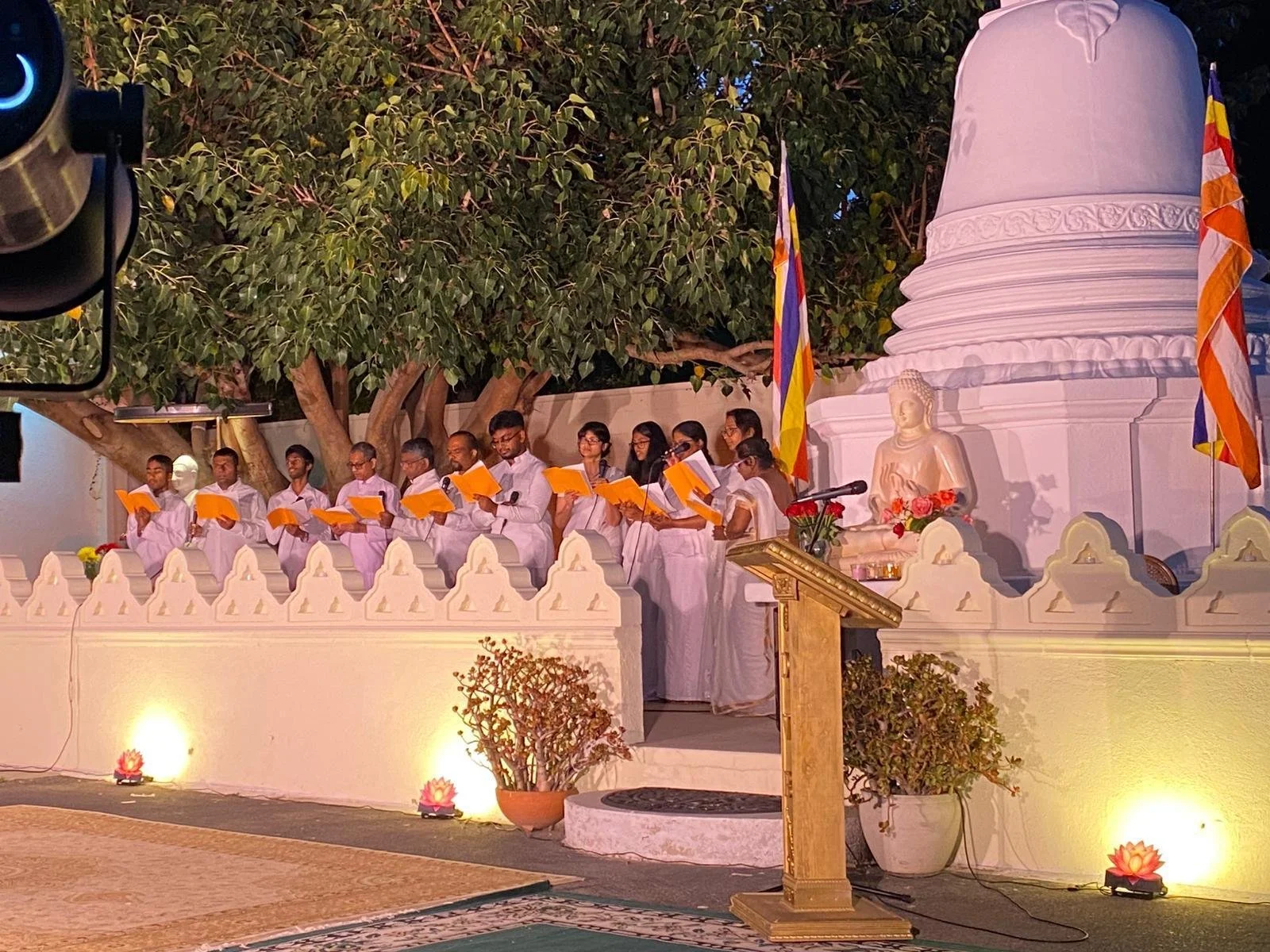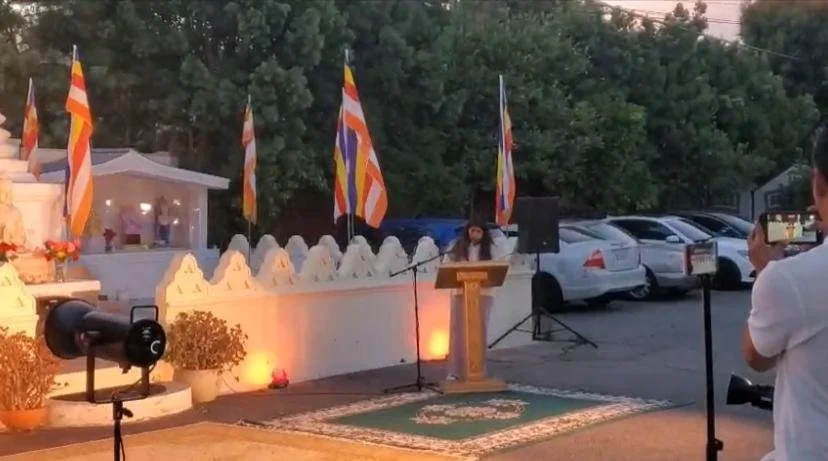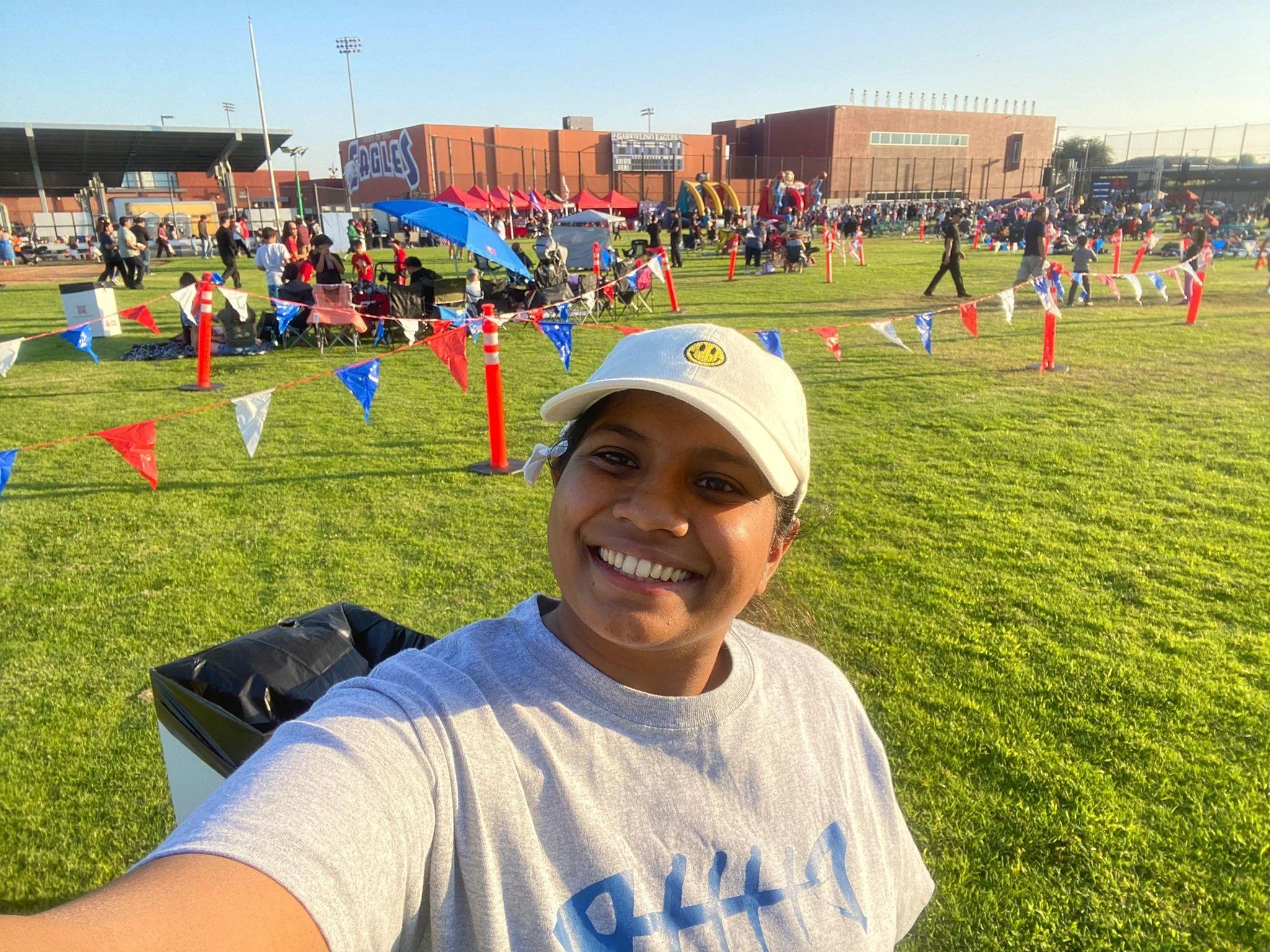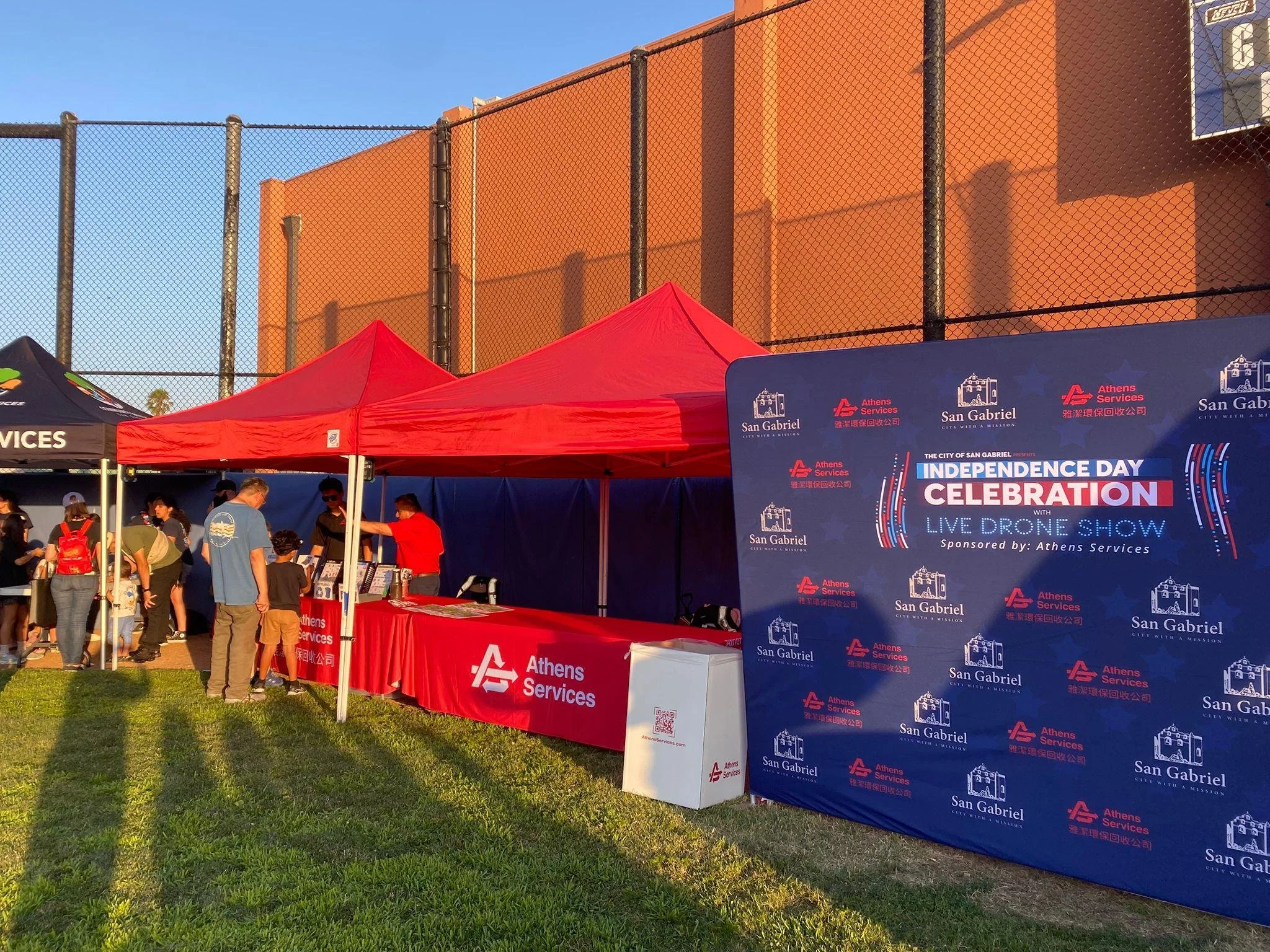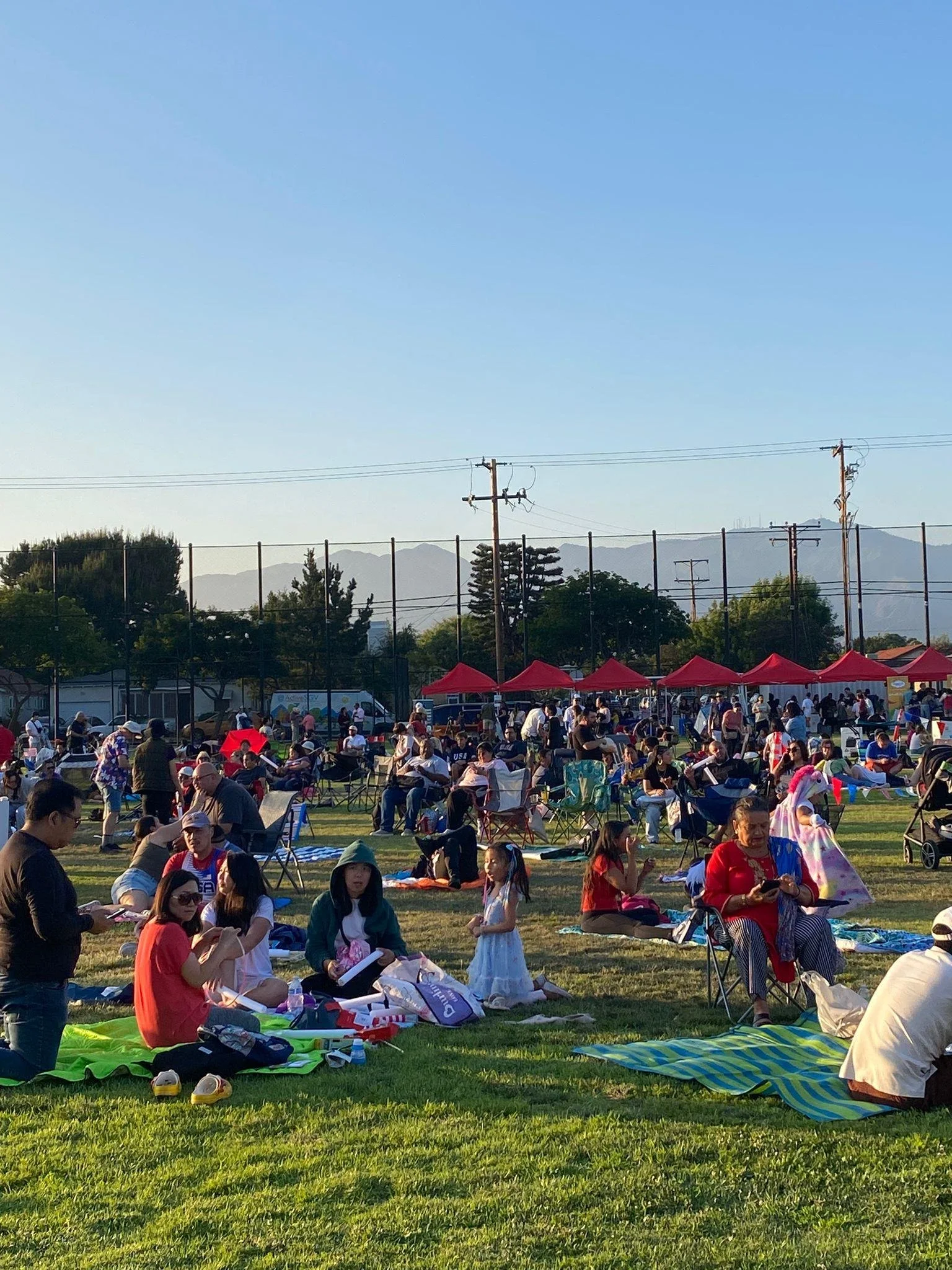By Dulasi Tennakoon, 2025 CLA Intern
On June 29th, I had the opportunity to attend a religious community celebration at the Dharma Vijaya Buddhist Vihara on Crenshaw Blvd. The event was held in honor of Poya Day, a monthly observance celebrated by Sri Lankan Buddhists. This gathering was centered around prayer, music, food, and community-building. As an international student, spaces of shared cultural and spiritual identity mean a great deal to me. This event was especially meaningful because it brought together not only Sri Lankan Buddhists but also members of other Asian American communities, such as Thai and Korean Buddhists, who share similar religious and cultural traditions. One of the most powerful moments of the evening was the Bhakthi Gee session, devotional songs that praise the life and values of Lord Buddha. Following the music, the community gathered for a shared dinner, where I had the chance to speak at the podium and express how much it meant to feel a sense of belonging so far from home. Through this experience, I learned just how vital cultural and religious spaces are for preserving identity and fostering intergenerational connections, especially for immigrant and diaspora communities. One of the most interesting conversations I had was with a Thai American woman who shared how her grandparents’ immigration journey was closely tied to Buddhist monastic life. We spoke about the way religious institutions often become centers for cultural preservation and civic leadership in immigrant communities, a place where it empowers marginalized voices, offers spaces for healing and solidarity, and cultivates a deeper sense of collective responsibility.
The next community event I participated in was the Independence Day celebration held on July 3rd in the San Gabriel Valley. This event was particularly special because it featured a mock campaign activity, which aligned perfectly with our focus on Assembly District 49. As part of my engagement, I interacted with around 80 individuals across a wide age range. I asked each person, based on their experience living in AD 49, what they believed was the most pressing issue in the district. The responses I received were insightful, many community members identified concerns around the road system, particularly infrastructure maintenance and traffic congestion. Others spoke about language accessibility, especially for older adults and immigrant populations who often face barriers when trying to access public services. These recurring themes have helped shape our campaign’s focus on infrastructure and equitable access to services. I also had the chance to connect with several small business owners at the event’s numerous vendor stalls. Listening to their stories, about navigating the pandemic, economic recovery, and the challenges of sustaining small businesses, deepened my understanding of the district’s economic landscape.
One of the most powerful moments of the day was when an elderly woman told me, “No one’s ever asked me that before,” after I inquired about her concerns for the district. That simple interaction reminded me that civic engagement starts with listening. It also emphasized that meaningful conversations don’t require formal settings, they can happen in everyday spaces like a community celebration. Events like this one show how civic engagement in American society goes beyond voting; it’s about building relationships, amplifying voices, and translating local concerns into collective action.

